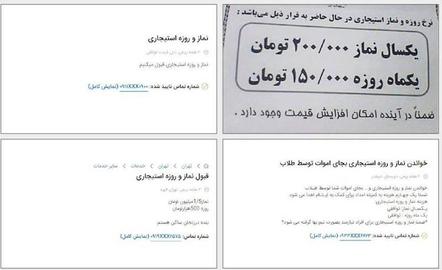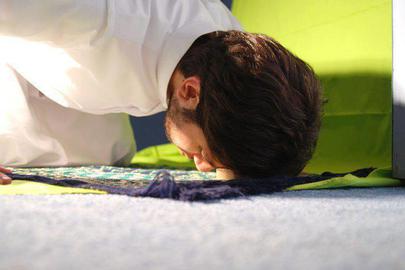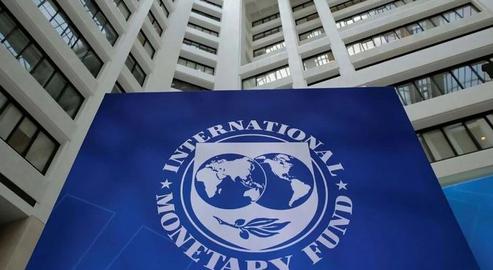“Responsibility for Sharia, including performing surrogate prayers and fasting for the deceased."
This is the text of a job advertisement posted online, and it’s not as rare as one might assume. In fact, as Ramadan started on April 12, there was a big increase in such notices. A citizen journalist going by the pseudonym Sasan Hekmat reviewed several of the ads and then investigated further. What types of people take on these jobs? What is it like to work in the religious “industry” and be paid to look after the religious practices of those who can afford it?
These advertisements have been commonplace over the last few years. But with coronavirus, they rose in number — especially requests regarding rituals around death. In fact, these jobs have a long history, though paying for the service and looking for the help online are relatively new developments.
The people who do these jobs are either employed independently, or hired by a Sharia institution, which is usually under the supervision of a religious source of emulation, the highest religious authorities in Shia Islam. Those employed by institutions are more secure. They don’t have to worry about finding regular customers who will need their services: praying and fasting for a deceased loved one and reciting the Quran. Freelancers usually work with people with whom they have a long-standing connection, and who have complete trust in them. After all, it’s a special relationship that can facilitate an individual's religious duties.
IranWire talked to Ahmad Agha, who works in one of these institutions. "Obviously, for those of us who have an office and a group of people, the work is not comparable to people who work independently. I do not intend to question the religious activities of my brothers and sisters, but our institution carefully selects people to carry out religious duties; they are either young seminary students who do this for some pocket money, or they are devout believers whose faith and practice has been approved by the management.”
The Price of a Prayer
Ahmad also told me a little about the pricing for such services. "Financial issues are really not an important part of our work. But in the end, those who perform these duties must make a living. Prices vary depending on the type of the religious duty. About 20 percent of it will be given to the institution to nurture a new generation of reciters and committed people, and the rest will be given to worshipers, official reciters and people who perform other religious duties."
The offices of religious sources of emulation have long been aware that these activities generate income, and they have always been a function of these institutions.
The offices normally update their price lists and rates on an annual basis. For example, the office of Nasser Makarem Shirazi, the government's favorite source of emulation, published its list earlier this year. One point of interest was a disclaimer that explicitly set out that if the person carrying out the rituals is not aware of the new prices and charges according to the previous ones, the difference will be charged to the customer. But after April 21, the notice said, the Qom office would not be able to deliver the services at the previous rates. In other words, the office specified that the price it charged had been updated based on inflation.
But this is strange, particularly since Nasser Makarem Shirazi has always fought against high prices and insisted that the Iranian people face economic pressure, including in meetings with government officials who travel to Qom to see him. In fact, he reiterated such a message during a meeting with interior minister Abdolreza Rahmani Fazli as recently as March 11, calling on authorities to work to resolve economic hardship and secure the well-being of the people.
I spoke to Rajab, 27 years old and originally from Tabriz and who now lives in Islamshahr with his wife and two children.
"My family is very religious," he told IranWire. "I was supposed to go to the seminary in Qom and study religion, but my late father, God bless him, had a small local grocery store that he could not manage alone, and I was by his side until the end. Last year, unfortunately, my father died and a few months later, my mother also passed away. We divided up my father's property and sold the shop. And for some time now, I have been earning my living by doing surrogate religious duties and praying and fasting. But it is very difficult."
Rajab shakes his head and says: "Praying and fasting as a surrogate requires connections. For the new year, Mr. Makarem's office has set the price of one year of prayer at three million tomans, and one month of fasting at two million tomans; they have a lot of customers. But I charge a whole year of prayer and a month of fasting for a total of three million tomans — and this is still high in the eyes of some people. But this is a spiritual activity and really should have no price. This is a gift paid by the relatives of the deceased. But believe me, it's not easy."
After a long pause, he continues: "We pray, we fast, so that we can live and feed our wives and children. Of course, it is a pleasure for me to earn my living through spiritual and divine affairs, but I wish I did not need the money so much."
Ghaher is from Afghanistan and has been living in Iran for more than 10 years with his two children. "My children were born in Iran and grew up here,” he says. “The security situation in Afghanistan meant that I didn’t want to take my family there yet. I worked as a construction worker here for many years and that’s how we lived. Then I worked as the caretaker of a garden in Shahriar for the last two years. I had a low income, but I worked less than a construction worker and I was able to spend time with my family."
He explained how he went on to conduct surrogate prayers. "Two years ago, when the owner of the garden died, his son gave me some money and asked me to pray for his father for 10 years. I did it. After that, a few more cases came up and I did those too.
"Given the economic situation, I wanted to have another job that would balance my income and expenses. But coronavirus came and everything fell apart. I also thought that the best thing for me to do would be to perform religious duties at home. I am away from coronavirus, I am with my family, I am closer to God, and I have an income."
He also described what happened when he attempted to join an official institution. "I went to the office of one of the sources of emulation and explained my situation. First they gave me a test and asked a lot of questions. I answered everything. But then they said they did not know me and could not trust me. But we are the trusted by the people and we cannot betray them."
He worried about what the office thought of him. "I mean, would I choose to go to hell for three million tomans a year? The price for one day — that is, 17 rakat of prayer for the deceased — is 11,000 tomans. For one month, it is 300,000 tomans; and for one year, it is 2.7 million tomans. I mean, would I commit haram for this amount of money?"
This article was written by a citizen journalist in Tehran under a pseudonym.
More from IranWire citizen journalists:
Letter from Tehran: Shoppers and Businesses Suffer from the Rising Price of Food
visit the accountability section
In this section of Iran Wire, you can contact the officials and launch your campaign for various problems


























comments